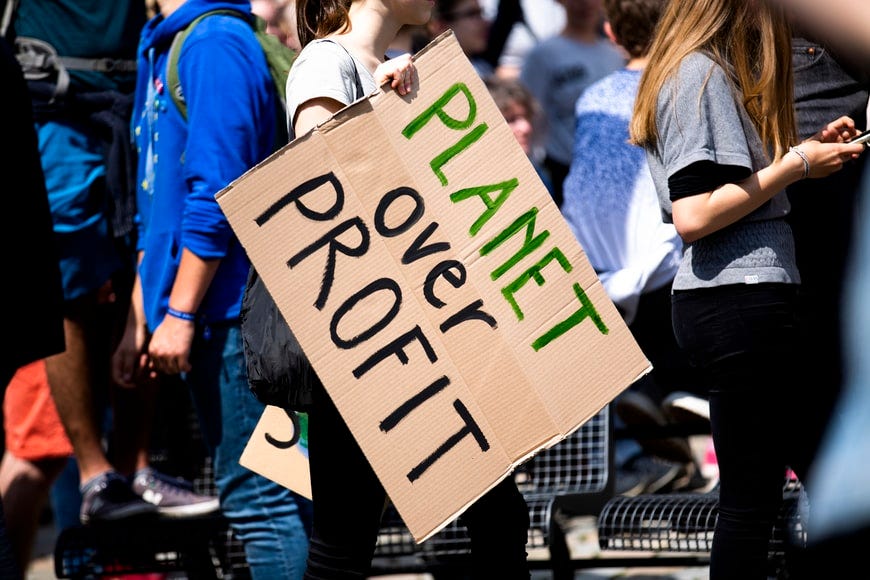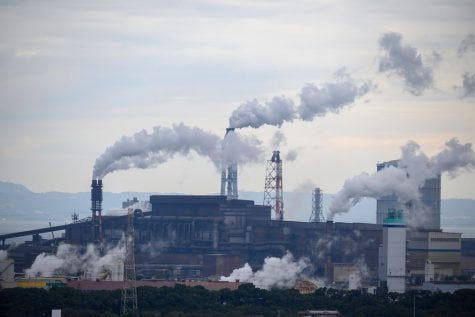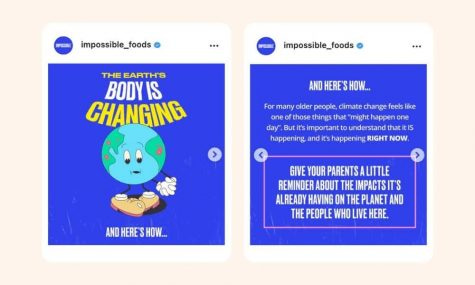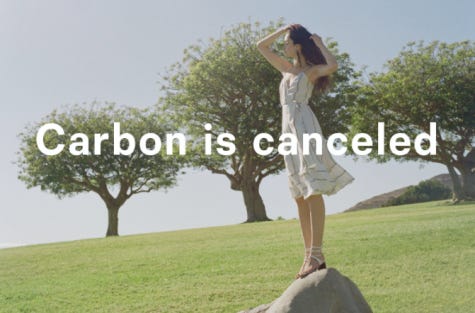Green culture is built on lies of omission
Isabel Silagy wrote this article for Long Beach State’s Daily Forty-Niner. It is available for republication or reference. If you think their work is important, you can support it here.

A few weeks ago, I sat in a classroom and listened to a pair of sustainability experts give a guest presentation on how CSULB students can solve the climate crisis.
They told us to buy hybrid cars. To shop at expensive sustainable clothing brands. To not travel by plane, ever.
Their tone-deafness was shocking. Telling a room full of broke, overtired college students to go buy a Prius and never wear clothing from stores we can actually afford? Right. When I left the classroom that day, I felt intense frustration and resentment about what they didn’t tell us.
These experts didn’t mention that the industries that pollute the most – steel, shipping, and aviation – regularly dodge climate legislation. Or that just 20 fuel companies are responsible for one-third of all carbon emissions in the world.
Or that China’s greenhouse gas emissions have nearly quadrupled in the last few decades, and now emits 10% more than the U.S. and the European Union combined.

The list of environmental travesties committed by countries and corporations is endless and is the driving force behind our current climate crisis. Yet, the narrative of green culture places the responsibility of fixing the planet on individuals.
Don’t get me wrong — I fully support actions that we can personally take to reduce our carbon footprints. Use a reusable water bottle, walk or bike places when you can, and turn off lights when you leave a room.
But we are kidding ourselves if we think that banning plastic utensils and not shopping at Forever 21 is going to fix the environment.
No matter how many climate infographics you post on your Instagram Story, China is going to keep building coal plants. No matter how many Teslas are sold, the U.S. will still buy and produce insane amounts of oil. No matter how trendy veganism becomes, the animal agricultural industry will still pollute our air.

The harsh reality is that we, as everyday people, do not have the ability to fix the planet. There are people who do have that power — but they’re not us.
They’re the politicians who receive millions in campaign donations from oil and gas companies. They’re the land developers who are making billions off of deforestation.
They are the same people who shove ‘green’ products down your throat that, actually, aren’t that environmentally conscious at all.
Did you know that solar panels only have a lifespan of 20 to 30 years? Once they expire, they are often thrown into landfills and sent to rot in developing countries because it’s too expensive to recycle them, according to the Institute for Energy Research. Worse yet, these improperly discarded solar panels leak toxic waste that harms the environment and human health.
According to the International Renewable Energy Agency, it estimates that by 2050 there will be nearly 80 million metric tons of solar panel waste in the world.
And solar panels aren’t the only problem.
According to PEW, the increasing popularity of electric cars is putting stress on state power grids, the systems that produce and deliver electricity. Due to increased electricity demands from electric cars, states are having to increase electricity production and potentially raise energy prices.
Like solar panels, electric car batteries expire and are highly dangerous to recycle. The Environmental Protection Agency found in a 2021 report that the batteries caused hundreds of fires in recycling facilities between 2013 and 2020.
But of course, these are not the things we are taught.
We are just told by companies, influencers, and politicians to be concerned with the environment and buy green products without concern for if they work, or who can even afford them.
It’s no secret that green products are much more expensive than conventional products. Low-income and middle-class people cannot afford to pay such high prices for organic groceries, sneakers made from recycled materials, or install solar panels on their homes.
Environmentalism is a movement historically led by wealthy white people who do not have trouble affording green products. They also do not face the same climate threats to their homes or live next to refineries and landfills.
Working-class people and people of color are facing the immediate consequences of climate change and cannot afford green products, but their voices are not heard.
World leaders and climate activists fail to acknowledge that everyday people cannot carry the weight of environmentalism. Either individuals cannot afford to get involved, or they get discouraged by the lack of results they see for their efforts and fall out of the green movement.
Their discouragement is real. The insurmountable challenges that green efforts face are real. It is irresponsible for leaders and advocates in the green movement to withhold the truth about how unfair this fight is.
Concern for our environment is good. We should care what happens to our planet. Green culture is nice — in theory. But I am tired of activists trying to convince me that if I drive a Prius, never buy a cheeseburger again, and wear $200 Reformation jeans climate change will be solved.
The destruction of the planet is in the hands of industry and world leaders who care far more about growing their fortunes and staying in office than leaving behind a livable planet.




